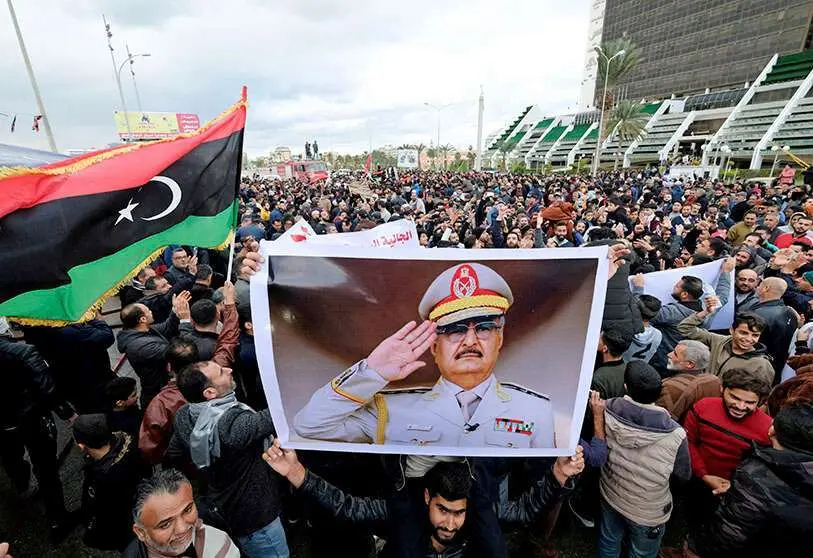Marshal Haftar announces that he is taking political control of Libya

Marshal Khalifa Haftar, the unrecognised leader of the Executive in the east of Libya and a strongman of the country, announced today that the military council which he presides is preparing to take political control and therefore to dissociate itself definitively from the agreement forced by the UN in 2015 in the Moroccan city of Skhirat, which imposed the formation of the current Government of National Accord in Tripoli (GNA).
In a short speech broadcast on television, Haftar., head of the LNA, the Libyan National Army, did not detail what kind of government he intends to lead and simply stressed that it responds to what he believes is "the will of the people".
"We want to announce that the general command has listened to the will of the people, and that, despite the enormous responsibility, the size and the many obligations that it entails, we will accept the people's wish," he said.
A former member of the military leadership that overthrew King Idris in the late 1970s, Haftar was recruited by the CIA and transferred to the United States in the late 1980s when he was a senior officer in Muammar al-Qadhafi's army and became one of the main opponents of the dictator in exile.
He returned to the country in March 2011, barely a month and a half after the popular rebellion that nine months later ended the life and regime of the dictator.
In 2014 he was appointed head of the regular Libyan Army (LNA) by the parliament elected that same year at the polls, which had to flee to the eastern city of Tobruk after the government in Tripoli did not recognize the electoral defeat.
The UN then launched a failed peace process that ended in December 2015 in Skhirat with an agreement for the formation of a government in Tripoli made up solely of minority groups from both sides, which both the former Islamist-style Executive and the Haftar-led Parliament never accepted.
Since then, civil war and chaos have dominated Libya, a conflict that has become, in the last year, a multinational conflict without armies, fought by dozens of local militias and groups of private mercenaries linked both to the government supported by the UN in Tripoli (GNA) and to the forces under the command of the marshal.
The armed confrontation intensified in April last year, when Haftar - which is supported by Jordan, Saudi Arabia, Egypt, the United Arab Emirates (UAE) and Russia - surrounded the government in the capital, which is militarily backed by Italy, Qatar and Turkey.
Since then, nearly 2,000 people have died - around 350 of them civilians - around 20,000 have been injured and more than 200,000 have been forced to leave their homes and become internally displaced.










